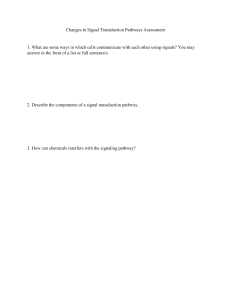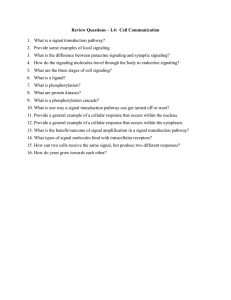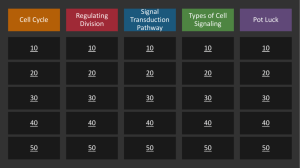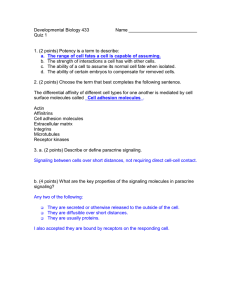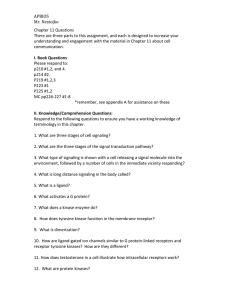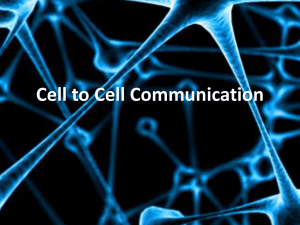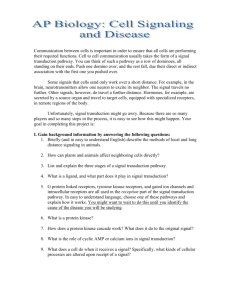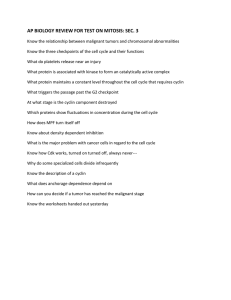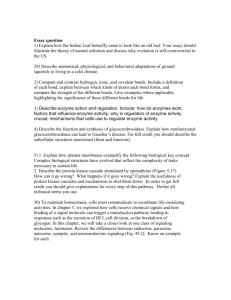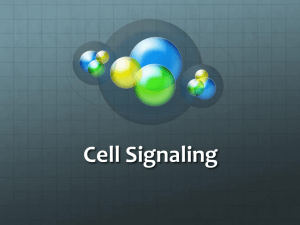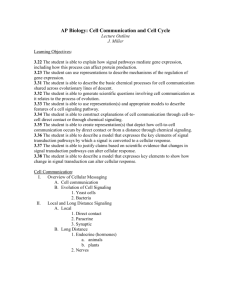AP Biology: Cell Cycle & Cell Signaling Study Guide
advertisement
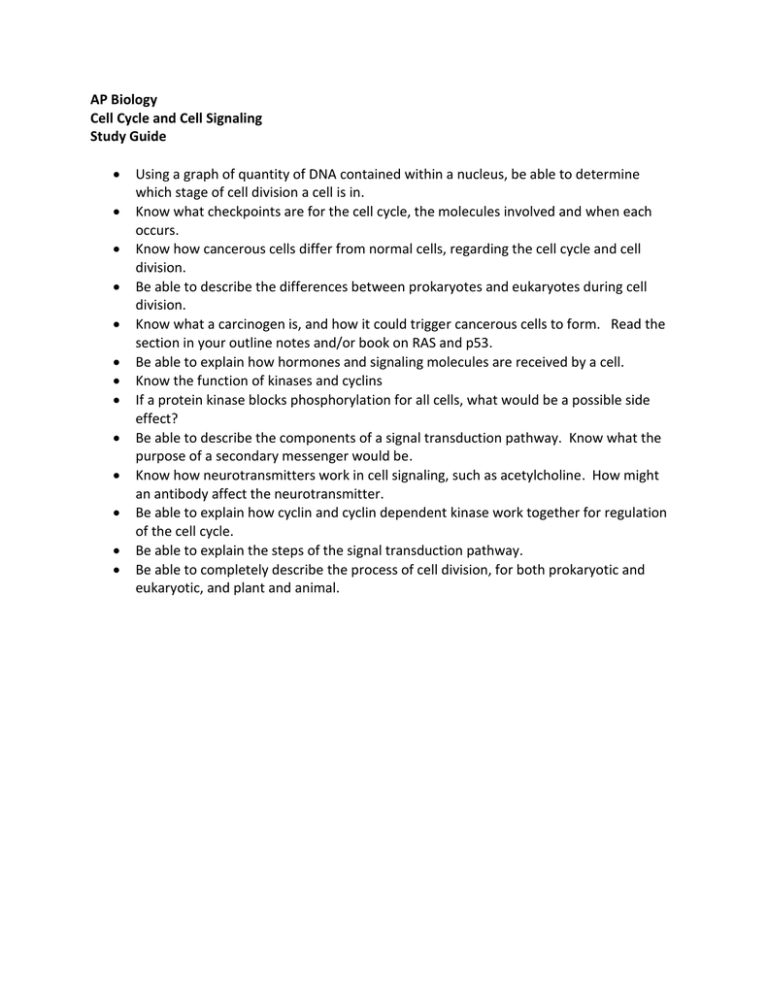
AP Biology Cell Cycle and Cell Signaling Study Guide Using a graph of quantity of DNA contained within a nucleus, be able to determine which stage of cell division a cell is in. Know what checkpoints are for the cell cycle, the molecules involved and when each occurs. Know how cancerous cells differ from normal cells, regarding the cell cycle and cell division. Be able to describe the differences between prokaryotes and eukaryotes during cell division. Know what a carcinogen is, and how it could trigger cancerous cells to form. Read the section in your outline notes and/or book on RAS and p53. Be able to explain how hormones and signaling molecules are received by a cell. Know the function of kinases and cyclins If a protein kinase blocks phosphorylation for all cells, what would be a possible side effect? Be able to describe the components of a signal transduction pathway. Know what the purpose of a secondary messenger would be. Know how neurotransmitters work in cell signaling, such as acetylcholine. How might an antibody affect the neurotransmitter. Be able to explain how cyclin and cyclin dependent kinase work together for regulation of the cell cycle. Be able to explain the steps of the signal transduction pathway. Be able to completely describe the process of cell division, for both prokaryotic and eukaryotic, and plant and animal.
